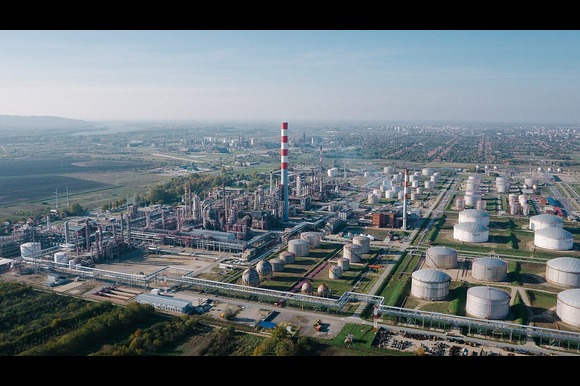The United States has officially enforced sanctions on Serbia’s Petroleum Industry of Serbia (NIS), the country’s majority-Russian-owned oil company that operates its only refinery. The move, which took effect Thursday morning after months of postponement, has raised concerns about Serbia’s energy stability and its financial sector’s exposure to international pressure.
In a statement following the sanctions’ implementation, NIS confirmed that it “had not yet been granted an extension of the special licence from the United States Department of the Treasury.” The company said it was actively seeking solutions and “working with the US Treasury to secure its removal from the sanctions list.”
Serbia’s Heavy Dependence on Russian Energy
Serbia relies almost entirely on Russian oil and gas imports, which reach the country primarily through pipelines that cross Croatia and neighboring nations. The fuels are refined and distributed domestically by NIS, which is predominantly owned by Russia’s state oil giant, Gazprom Neft.
The US Treasury sanctioned NIS in January as part of Washington’s broader effort to curb Russia’s energy revenues following Moscow’s 2022 invasion of Ukraine. Despite the sanctions, NIS has sought to reassure Serbian consumers that fuel supplies remain stable. “The company currently has sufficient crude oil reserves for processing, and petrol stations are fully supplied with all petroleum products,” NIS said.
Economic Ripple Effects and Banking Sector Risks
President Aleksandar Vučić warned earlier this week that the sanctions could have serious economic repercussions, particularly within Serbia’s banking sector. “There is no bank in the world that would risk violating US sanctions,” Vučić said, acknowledging the potential isolation of Serbian financial institutions from international transactions.
NIS officials further confirmed that they anticipate foreign payment cards will soon stop functioning, forcing petrol stations to accept only domestic Serbian cards or cash payments. Despite these complications, the company insists that retail operations are running normally.
At a central NIS station in Belgrade on Thursday, sales remained calm. “Our sales are operating as normal. There are no restrictions when it comes to the quantities customers can purchase,” said Bojana Radojević, NIS’s retail director, in an interview with the state broadcaster.
Regional and Corporate Fallout
The sanctions are also expected to impact regional energy infrastructure partners. Janaf, Croatia’s pipeline operator that delivers oil to NIS, said it could suffer an €18 million ($21 million) loss this year due to the disruption.
“The expectation that the US will lift the sanctions is irrelevant. NIS put itself in this situation, and it must resolve it,” said Stjepan Adanić, Janaf’s chairman, in an interview with Croatian broadcaster HRT.
President Vučić revealed that discussions are already underway about NIS’s future ownership structure, including the potential divestment of Russian shareholders. However, he did not specify a timeline or confirm any ongoing negotiations with Western partners.
Tensions Between Belgrade, Moscow, and the West
Although Serbia has formally applied for European Union membership, it continues to resist Western sanctions against Russia, citing its reliance on Russian gas and long-standing political and cultural ties with Moscow.
The pro-Russian Vučić government now faces one of the most significant domestic challenges of his decade-long rule. Protests led by students and civic groups have intensified following a fatal accident last year, when a concrete canopy collapsed at a northern railway station, killing 16 people.
Meanwhile, energy discussions continue as Serbia’s current gas supply deal with Russia, signed in the spring of 2022, nears expiration. Talks are ongoing for a new contract amid international scrutiny.
Ownership Breakdown and Corporate Shifts
NIS remains 45% owned by Gazprom Neft, while the Serbian state holds nearly 30%, and the rest is distributed among minority shareholders. Last month, Gazprom, the company’s parent firm, transferred its 11% stake to Intelligence, a Saint Petersburg-based enterprise reportedly linked to the Russian energy sector.
Despite international sanctions and political turbulence, NIS maintains that it has adequate resources to continue operations and meet domestic fuel demand. Still, the broader implications of the US sanctions — for Serbia’s economy, regional trade partners, and its EU ambitions — remain uncertain.






